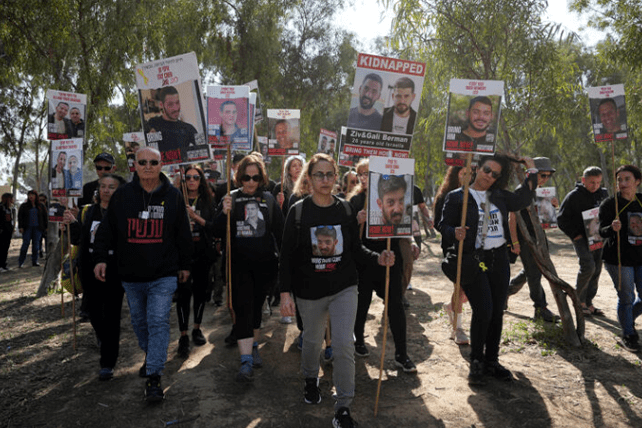Cardoza-Moore, a longtime presence at NRB, began her pro-Israel work in the early 2000s, spearheading a Tennessee resolution in support of Israel in 2002.
Evangelicals, she said, have a responsibility to defend both Israel and their Jewish neighbors.
“Antisemitism never goes away,” she said. “We need to protect our Jewish brethren — and we as Christians have a biblical duty to do that, according to the Scriptures.”
Luke Moon, deputy director of the Philos Project, which promotes “positive Christian engagement in the Near East,” said evangelicals need to be more intentional and clearer in their support of Israel. Moon, who had a booth at the NRB, said he recently attended a major youth conference where he set up a sign that said, “We are the Zionist generation.”
The same sign, he said, was set up at the NRB booth.
For years, the nonprofit has taken Christian leaders on education trips to Israel — something that is on hold due to the war. The work now has shifted to building solidarity with Israel.
Moon said the Oct. 7 attacks revealed that Philos has a great deal of work to do.
“I thought the world of allies to the Jewish people was bigger,” he said.
Tal Heinrich, a long-term Israeli journalist turned spokesperson for Israeli Prime Minister Benjamin Netanyahu, said evangelical leaders are allies who share the same values as Israel’s leaders. They both have “moral clarity” about why Israel is fighting Hamas, said Heinrich. And evangelicals are willing to back up their belief in the importance of Israel with action — which is exactly what Israel needs at this moment.
“We will not stop fighting for a lack of support. But it’s a nice thing to have — knowing that you are not alone,” she said, adding that evangelical broadcasters have a role to play at this moment.
“We need you to speak the truth,” she said. “Don’t let anyone forget what happened. Don’t let anyone forget why Israel is fighting.”
For hostages’ family members, like Lavi, the goal is more personal. They want to make sure the more than 130 remaining hostages are not forgotten as the war drags on and political pressure for a cease-fire grows. Lavi said he hoped the evangelical leaders and broadcasters he met with would share the stories about those still missing as widely as possible.
“We try to ensure that this remains at the top of the agenda for decision-makers,” he said.
He compared the medallion he wears as a reminder of his brother-in-law to the fictional ring of power featured in the Lord of the Rings books. That ring became a heavy burden for whoever carried it.
Likewise, bearing witness to the hostages is a burden for families — one Lavi hopes will be lifted when hostages like his brother-in-law come home.
“I wear it every day,” he said, referring to the medallion. “I can’t wait to take it off.”
This article originally appeared here.

